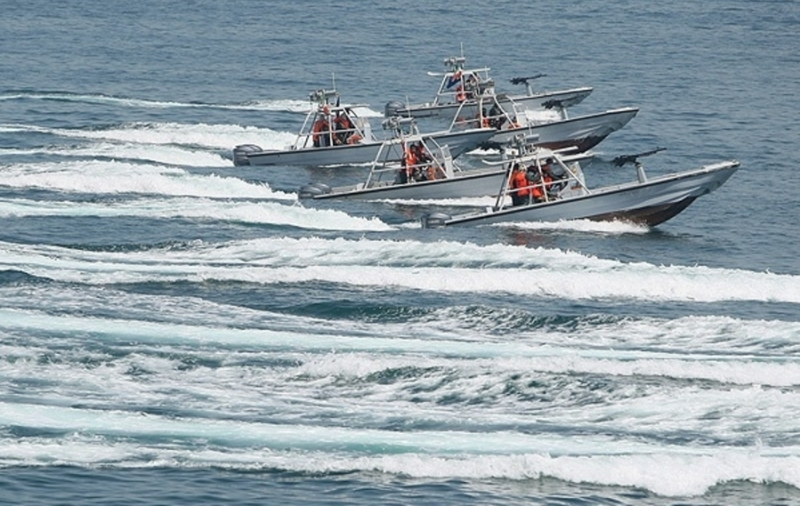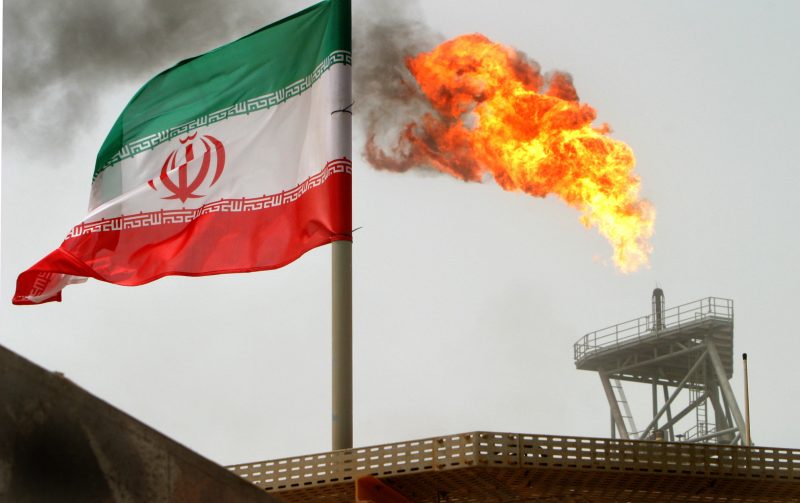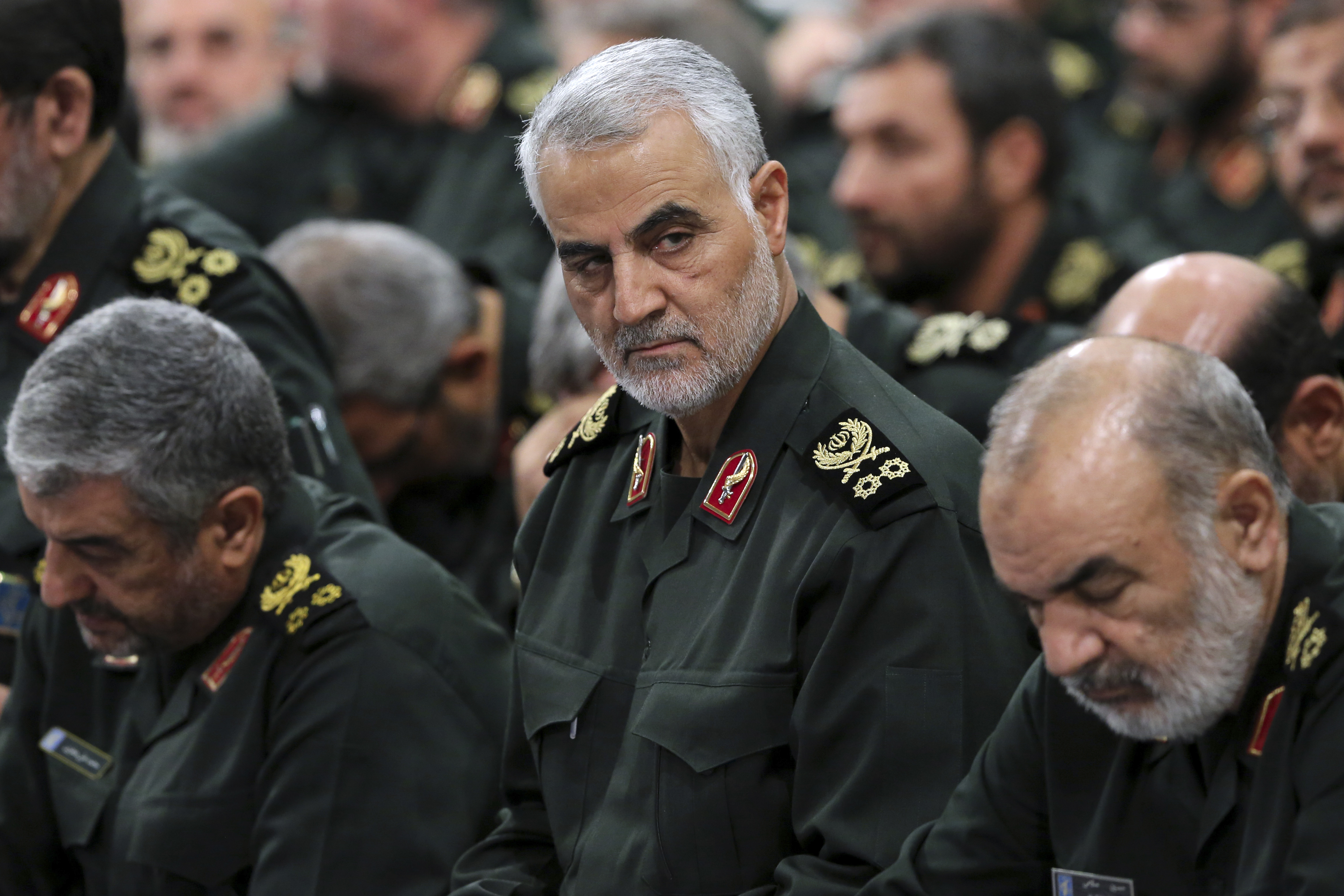- President Donald Trump’s war of words with Iran escalated into a new dimension on Thursday, with Iran’s Maj. Gen. Qassem Soleimani threatening to destroy everything Trump owns.
- There’s no way Soleimani could actually get that done, and experts say he’s just bluffing.
- Iran’s military would get totally wiped in a war against the US, but Iran has many other ways it can – and does – hurt the US.
- But Iran can’t act up now – it’s trying to win some good press before the US reimposes sanctions, so that other countries may look favorably on it and continue to buy its oil.
President Donald Trump’s war of words with Iran escalated into a new dimension on Thursday, with Iran’s Maj. Gen. Qassem Soleimani threatening to destroy everything Trump owns.
After Iranian President Hassan Rouhani told Trump he could expect the “mother of all wars” if the US fought with Iran, Trump shot back an all-caps tweet threatening the country with an epic beatdown.
Soleimani, who leads Iran’s foreign military ventures as part of an outfit the US calls a supporter of terrorism, was not amused.
“As a soldier, it is my duty to respond to your threats … If you want to use the language of threat … talk to me, not to the president,” Soleimani was quoted as saying by Iran’s Tasnim news agency, according to Reuters.
"You know that this war will destroy all that you possess. You will start this war, but we will be the ones to impose its end. Therefore you have to be careful about insulting the Iranian people and the president of our Republic," Soleimani told Iran's Arabic-language Al-Alam broadcaster, according to CBS News.
"You know our power in the region and our capabilities in asymmetric war," he added. "We will act, and we will work."
Soleimani, known as "the shadow commander," is one of the Middle East's most feared commanders as the leader of the Quds Force, the special-forces unit of the elite Islamic Revolutionary Guard that runs paramilitary operations in what experts believe is dozens of countries.
While Soleimani does command a capable military, and Iran's prowess in asymmetric war - or nonconventional fighting like guerrilla war via militias and cyberattacks - is well established, several experts Business Insider contacted said they saw this as little more than a bluff.
Not only is Iran far from taking military action against the US - it's very far from being able to inflict the kind of damage Soleimani described.
Iran's outmatched, but far from stupid

"There are two ways to fight the US military: asymmetrically and stupid," the former US national security adviser H.R. McMaster once said.
"Iran's military has some numbers - they really make a big show out of its navy, the Islamic Revolutionary Guard Corps, and the missiles it has," Emily Hawthorne, a Middle East analyst at Stratfor, told Business Insider. "But compared to its rivals in the Gulf, and of course to the US, Iran knows it would conventionally be fighting a losing battle if it picked a fight with the US."
So instead of a stupid fight that would quickly see its forces crushed and humiliated, Iran would be likely to opt for asymmetric attacks and proxy battles in any escalation with the US.
Houthi militants in Yemen have harassed Saudi oil tankers to the point where Saudi Arabia on Wednesday shut down oil shipping through the Bab el-Mandeb Strait. The US intelligence community holds that Iran supports and to some degree directs these militants, and Hawthorne said Iran would most likely look to hurt the US by hurting its allies via proxies like the Houthis.
If Iran's navy were to outright attack the US or another allied navy, it would find itself swiftly and soundly defeated. Instead, Iran "clings to plausible deniability" through its network of militias around the region, Hawthorne said. In Yemen, Iran has the Houthis. In Lebanon, Iranian-backed Hezbollah keeps Israel in its crosshairs. Syria and Iraq hold a patchwork of Iranian-backed militias.
The US has about 2,000 troops in Syria, but confronting them has time and again proved a losing battle for Iran's 70,000 or so fighters there.
Iran has cyber capabilities that could hobble US or allied infrastructure and kick up dust during a fight. Iran's military could mine the regional waterways and launch small fast-attack craft on suicide runs against massive US Navy ships.
While the massive might of the US military would eventually crush Iran's smaller, weaker forces, they could impose tremendous cost through asymmetric attacks in an attempt to bleed US forces by a thousand cuts.
Iran has its hands tied

As Iran awaits the US's reimposition of sanctions on oil exports on November 4, it is desperate to "maintain a perception that it is a good actor to increase the possibility that the international community would back them up" and continue to buy oil, Aniseh Bassiri Tabiriz, a Middle East expert at the Royal United Services Institute, told Business Insider.
The US unilaterally withdrew from the Iran deal, which promised Iran relief from sanctions, without persuading its European allies to follow suit. Now, before the European countries have picked a side, Iran hopes to win them over with a period of relative calm.
Soleimani, as head of the Revolutionary Guard, must advance its principal security ambition, which is to "fight against any kind of hegemonic behavior in the region," Tabiriz said. "They have to give the perception that whatever the US is going to do against Iran, they're going to defend themselves."
But for now, Soleimani's tough talk appears to be merely a threat.











